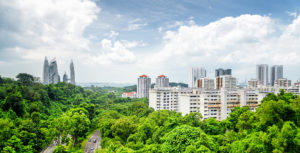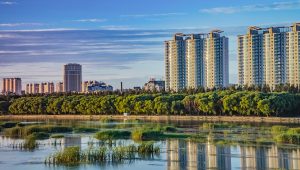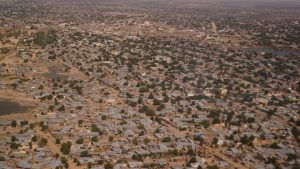Building a resilient future through water
Water is key to the success of all the Sustainable Development Goals, SDGs, and therefore essential for delivering on the 2030 Agenda that aims to transform our world into the future we want. To achieve this, a new way of managing water is needed, to make societies more resilient, sustainable and inclusive. This policy brief, which is also an open letter that calls for action, takes a closer look at how this can be achieved.

Water is key to the success of all the Sustainable Development Goals, SDGs, and therefore essential for delivering on the 2030 Agenda that aims to transform our world into the future we want. To achieve this, a new way of managing water is needed, to make societies more resilient, sustainable and inclusive. This policy brief, which is also an open letter that calls for action, takes a closer look at how this can be achieved.
The measures put in place today to manage current and future water stresses will determine our future resilience and well-being. To mitigate and manage potential drivers of water-
related conflicts, improve access to services for all, enable better water resources management for people and the environment, and create incentives for water use efficiency and strengthened water security, countries must:
Recommendations
- Develop effective, accountable and transparent institutions;
- ensure responsive, inclusive, participatory and representative decision-making at all levels through enhanced and informed choices, thus ensuring ownership of measures taken;
- adopt a resilience-building approach to designs for social and economic progress, recognizing the fundamental need of human and natural systems to thrive under global change;
- address market failures to adequately value water, reduce pollution, incentivize efficient use, improve productivity and provide for socially optimal water allocation;
- apply a human rights-based approach to water and sanitation services and wise water management, especially by and for disadvantaged and underrepresented groups, such as ethnic minorities, indigenous peoples and other vulnerable groups; ensuring full inclusion of other stakeholders, especially women and youth in the decision-making and management;
- establish correspondingly inclusive inter-sectoral, multi-stakeholder decision-making and accountability platforms, and designing integrated policies and plans;
- ensure adequate and complementary financing for progress on water-related SDGs as an essential element in the 2030 Agenda for Sustainable Development and all related agendas.



